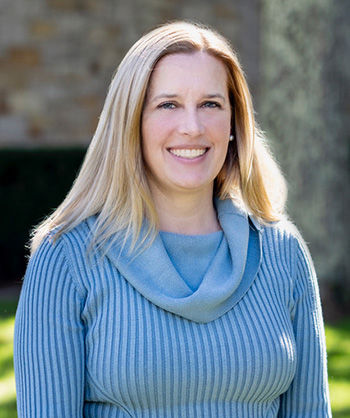

Associate Professor
Chair, Children, Youth and Families Field of Practice

McGuinn Hall 209
Telephone: 617-552-1866
Email: j.black@bc.edu
Educational Neuroscience, Neurodiversity, Innovation in Social Work Curricula, Dyslexia, Motivation, Positive Emotion, Spirituality, Neurotheology, Sleep, Mental Health, Translational Science, Educational Policy
Nature Reviews Neuroscience: The neural basis of humour processing
Cognitive Neuroscience Society: What Shapes a Child’s Sense of Humor?
Jessica M. Black, MA, PhD, is Associate Professor, Chair of Children, Youth and Families Field of Practice, Teaching Chair, and The Cell to Society Lab Director at the School of Social Work, Boston College. Dr. Black is an educational neuroscientist whose research centers on ways in which child and adolescent biological development is informed by surrounding proximal and distal experiences such as with sleep, family, school, and religion.
Dr. Black is dedicated to illuminating the strengths young people hold and share including humor, play, flexibility, and drive. She is at the forefront of championing efforts to fuel bridges between neuroscience and social work nationally and locally related to pedagogy, theory, and practice. She developed and leads the Neuroscience and Social Work Certificate, the first and only training of its kind.
Dr. Black’s interdisciplinary emphasis in scholarship and teaching is informed by her formal educational background in psychology, education, and neuroscience, and her essential collaborations with esteemed scholars and seasoned practitioners in social work, ministry, theology, and psychiatry.
Pierce, Z. P., & Black, J. M. (2022). Stress and susceptibility: A systematic review of prenatal epigenetic risks for developing Post-Traumatic Stress Disorder. Trauma, Violence & Abuse, 15248380221109792. Advance online publication. https://doi.org/10.1177/15248380221109792
Pierce, Z. P., & Black, J. M. (2021). The neurophysiology behind trauma-focused therapy modalities used to treat Post-Traumatic Stress Disorder across the life course: A systematic review. Trauma, Violence & Abuse, 15248380211048446. Advance online publication. https://doi.org/10.1177/15248380211048446
King, C. D., Joyce, V. W., Nash, C. C., Buonopane, R. J., Black, J. M., Zuromski, K. L., & Millner, A. J. (2021). Fear of sleep and sleep quality mediate the relationship between trauma exposure and suicide attempt in adolescents. Journal of Psychiatric Research, 135, 243–247. https://doi.org/10.1016/j.jpsychires.2021.01.026
Black, J. M., & Conway, A. M. (2018). The importance of developmental neuroscience for social work research and practice with children and adolescents. Journal of the Society for Social Work and Research, 9(2), 261-284. https://www.journals.uchicago.edu/doi/full/10.1086/698166
Black, J. M. (2017). Adolescent brain development. Encyclopedia of Social Work: Oxford University Press. February, https://doi.org/10.1093/acrefore/9780199975839.013.1239
Yamagata, B., Murayama, K., Black, J. M., Hancock, R., Mimura, M., Yang, T. T., Reiss, A. L., & Hoeft, F. (2016). Female-specific intergenerational transmission patterns of the human corticolimbic circuitry. The Journal of Neuroscience, 36(4), 1254–1260. https://doi.org/10.1523/JNEUROSCI.4974-14.2016
Black, J. M., & Hoeft, F. (2015). Utilizing biopsychosocial and strengths-based approaches within the field of child health: what we know and where we can grow. New Directions for Child and Adolescent Development, 147, 13–20. https://doi.org/10.1002/cad.20089
Vrticka, P.**, Black, J. M.**, & Reiss, A. L. (2013). The neural basis of humour processing. Nature Reviews. Neuroscience, 14(12), 860–868. https://doi.org/10.1038/nrn3566
New Hampshire Department of Education Grant, Bureau of Student Wellness: Black (PI)
Dates: 06/01/2022 – 09/30/2024
A Scientific Investigation of Student Wellbeing and Play-Based Intervention Programming in New Hampshire Elementary Schools
Science for Seminaries Grant, American Association for the Advancement of Science: Doyle (PI)
Dates: 04/01/2021 – 10/30/2022
Role: Co-I
Neuroscience Education in Theology Training (NETT Project)
Academic Technology Innovation Grant (ATIG), Boston College: Black (PI)
Dates: 06/01/2020 – 5/31/2022
Online Classroom Enhancement Project (OCEP)
Teaching and Mentoring Award (TAM), Boston College: Black (PI)
Dates: 06/01/2020 – 5/31/2021
Educational Neuroscience Toolbox for Higher Education
Faculty Research Expense Grant (REG), Boston College: Black (PI)
Dates: 06/01/2016 – 5/31/2017
Biomarkers in Adolescent Development and Resilience
Ignite Grant, Boston College: Black (PI)
Dates: 06/01/2014 – 5/31/2015
Using a Biopsychosocial Lens to Examine Risk and Protective Processes in Students with Learning Disabilities
Faculty Research Incentive Grant (RIG), Boston College: Black (PI)
Dates: 06/01/2012 – 5/31/2014
Prediction of Reading Achievement in Young Children
Member, Task Force on Infant and Early Childhood Mental Health and Developmental Neuroscience, Council on Social Work Education (2019 – 2022)
Editorial Board: Social Sciences (2020–); Advances in Social Science, Education and Humanities Research (2020– ); Education Sciences (2020–); PLOS ONE (2019–); Frontiers in Educational Psychology (2011–)
Teaching Excellence Award, Boston College School of Social Work, 2016
Teaching Excellence Award, Boston College School of Social Work, 2015